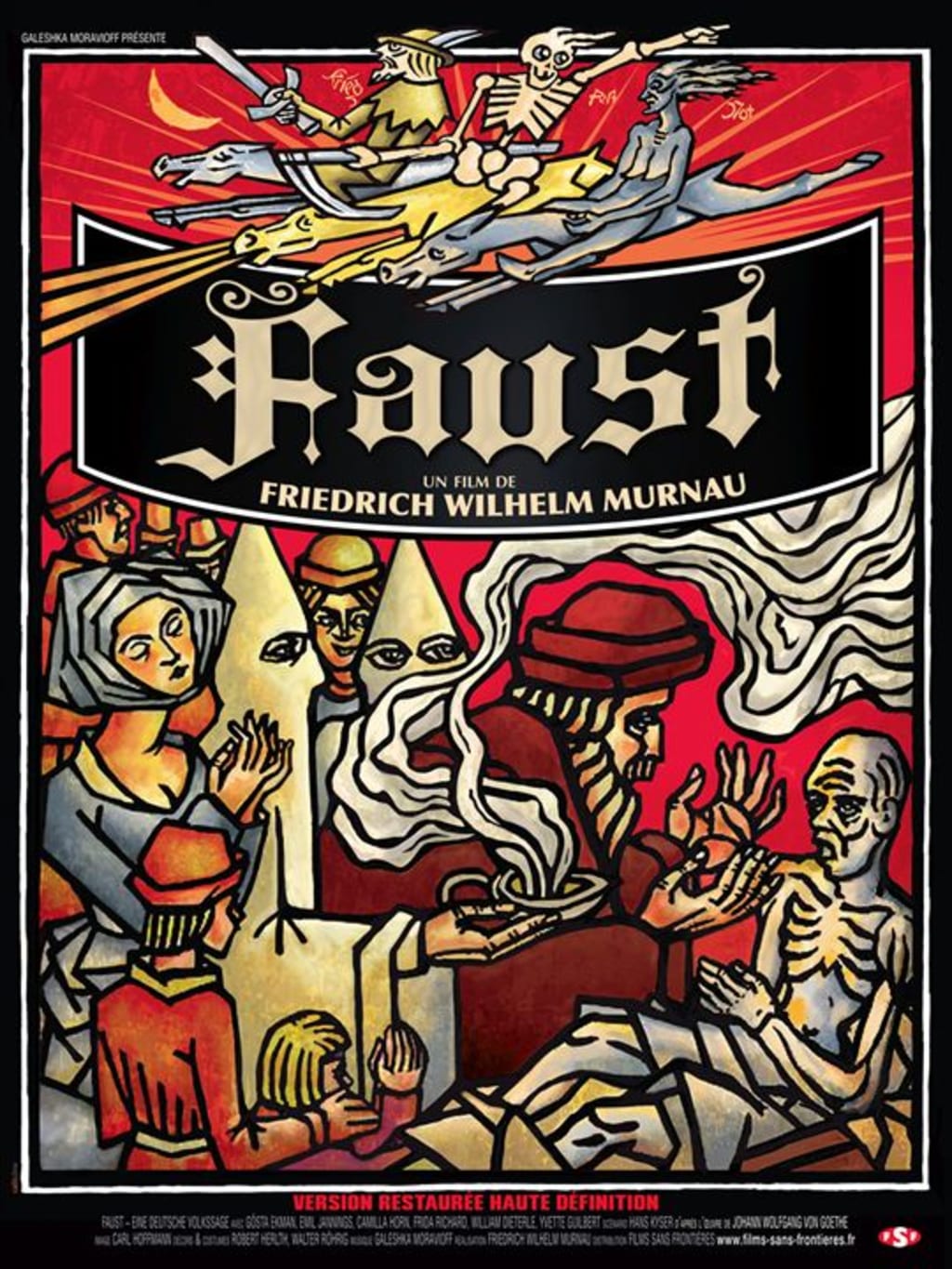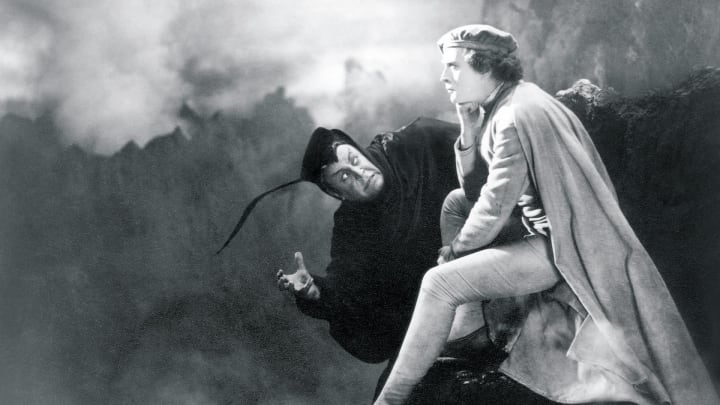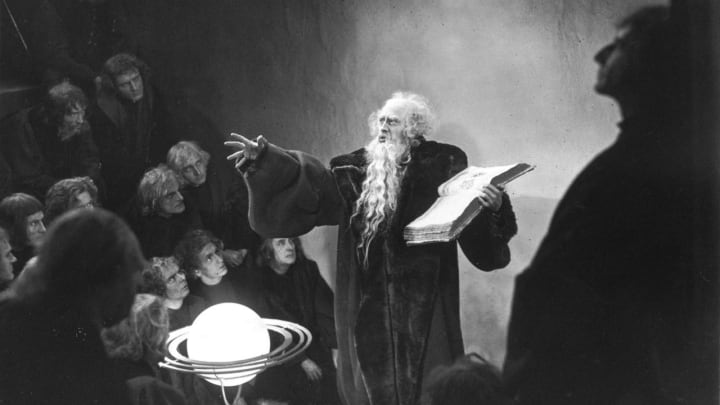A Filmmaker's Guide: "Faust" (1926)
Film Studies (p.158)

In this chapter of ‘the filmmaker’s guide’ we’re actually going to be learning about literature and film together. I understand that many of you are sitting in university during difficult times and finding it increasingly hard to study and I understand that many of you who are not at university or not planning on it are possibly stuck of what to do, need a break or even need to catch up on learning film before you get to the next level. This guide will be brief but will also contain: new vocabulary, concepts and theories, films to watch and we will be exploring something taboo until now in the ‘filmmaker’s guide’ - academia (abyss opens). Each article will explore a different concept of film, philosophy, literature or bibliography/filmography etc. in order to give you something new to learn each time we see each other. You can use some of the words amongst family and friends to sound clever or you can get back to me (email in bio) and tell me how you’re doing. So, strap in and prepare for the filmmaker’s guide to film studies because it is going to be one wild ride.
"Faust" (1926)
One of the most iconic German films of the 1920s is F.W Murnau's 1926 adaptation of the legend of Faust. For those of you who do not know: Faust is a Germanic legend about a doctor who sells his soul to the Devil. In return, Faust wants knowledge, experience and to be able to have power like no other being on the planet. The legend has been adapted into possibly one of my favourite plays on the planet: Christopher Marlowe's "Dr. Faustus" and then, there is the brilliant novel by Thomas Mann entitled "Doctor Faustus" as well and finally there is the poetics of Goethe in his brilliant "Faust".
Key word: Faustian
To say something is 'faustian' means that there is a pact with the Devil involved. This is normally used for media outside the realm of films, books and shows which are called "Faust" or "Faustus" as those are a given. For example: 'The Imaginarium of Dr. Parnassus' is a film about a Faustian Pact.
The film by Murnau is widely available with different scores put to it (I have my favourites, as do we all). But the main thing that is most interesting about this film is that it seems to be based on the very raw idea of the myth rather than its future adaptations of the Renaissance, the German Enlightenment and early half of Modernism.
Though it is stated that it is based on Goethe's German Enlightenment version, I would like to point out that a lot of the book has been cut out probably due to the same reason "Nosferatu" changed Dracula. I would like to call this:
'loosely based on Goethe, though working with some intent to provide original material and a new outlook on the legend.'
Let's take a look at how exactly Murnau portrays the life and times of Faust to us through this incredible film.
Still #1

Faust obviously an old man, wishes for his youth back and here we have him all youthful and majestic sitting down and thinking whilst the Devil's messenger - Mephistopheles (Mephisto) - a demon of Germanic Legend who appears in many stories after Faust - is trying to break his gaze. It says a lot about the movie since this is one of the key moments that Faust is actually wasting time. Many of the audience members may feel the need to cry out to Faust about why he is bothering sitting down since he doesn't have that kind of time. He must use it. And he does not. It is one of the key things about his character - he wastes too much time.
Still #2

A wide shot, a similar shot as the last one, but now we have more characters fitted into frame. Completely juxtaposed with the last frame. This one shows earlier in the story where Faustus is revered by people as he speaks and talks from experience. He has crowds around him. But, in the still above he is young and though he may be intelligent, he is now without the academic experience. His ponderings only draw the Devil back to him. It is brilliant to look at and ask the question about whether Faustus actually got what he wanted or not. Why didn't he get what he want and what did he have when he was older that he didn't have when he was younger that made him so revered as he is not int he first frame?
Conclusion
As we investigate further, there will be some more German films popping up (as I am quite into German cinema) so make sure you watch carefully because you may be able to draw some similarities between those in the same or similar time periods.
About the Creator
Annie Kapur
200K+ Reads on Vocal.
English Lecturer
🎓Literature & Writing (B.A)
🎓Film & Writing (M.A)
🎓Secondary English Education (PgDipEd) (QTS)
📍Birmingham, UK






Comments
There are no comments for this story
Be the first to respond and start the conversation.